PsychNewsDaily Publishers
100 Summit Drive
Burlington, MA, 01803
Telephone: (320) 349-2484
PsychNewsDaily Publishers
100 Summit Drive
Burlington, MA, 01803
Telephone: (320) 349-2484
The British royal family maintains unique customs, such as weighing Christmas guests, Swan Upping, and the Royal Maundy, reflecting their rich and quirky history.
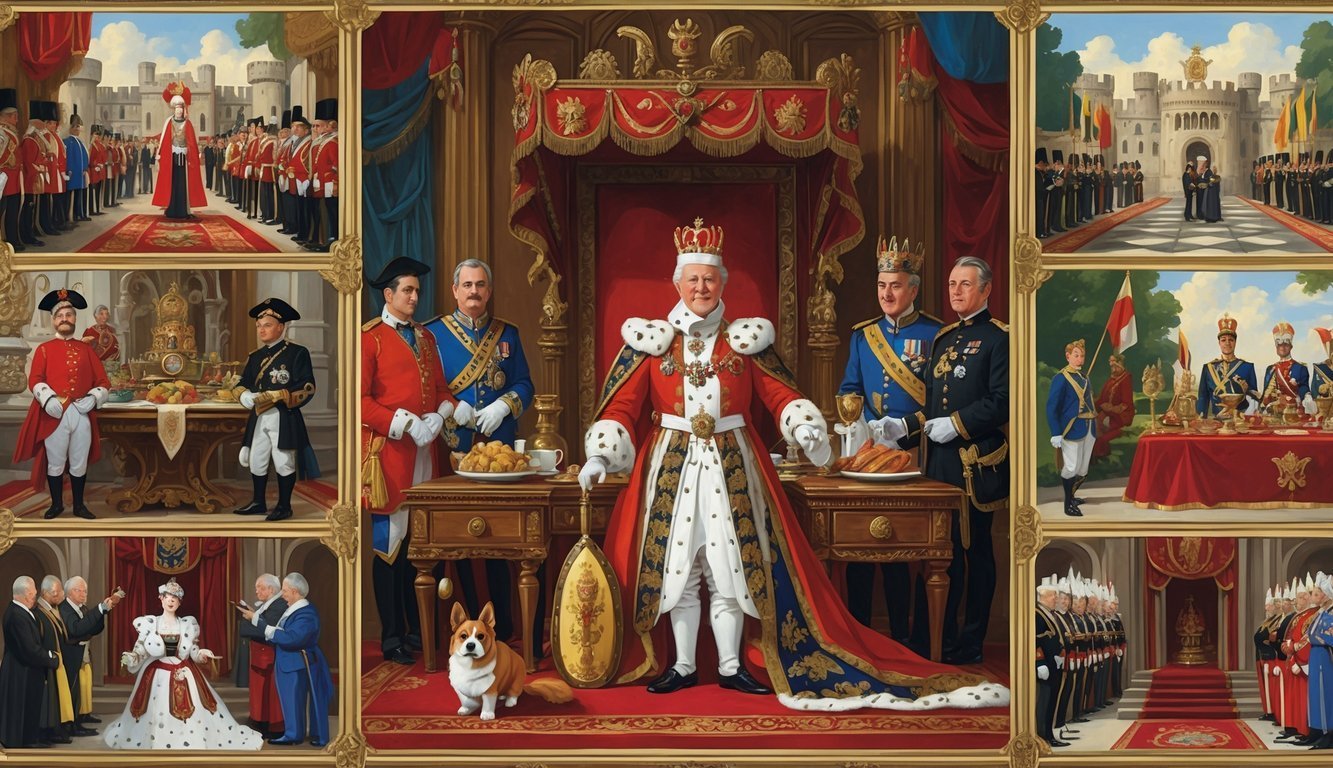
The British royal family has a reputation for its long, quirky history. Their world is packed with customs that might leave you scratching your head. Even now, they keep up with some truly odd rituals from centuries ago.
These 12 bizarre royal traditions give you a peek into just how fascinating and different royal life can be. Behind all the fancy ceremonies, you’ll find some rules that are, well, pretty strange—but they’ve stuck around for generations.
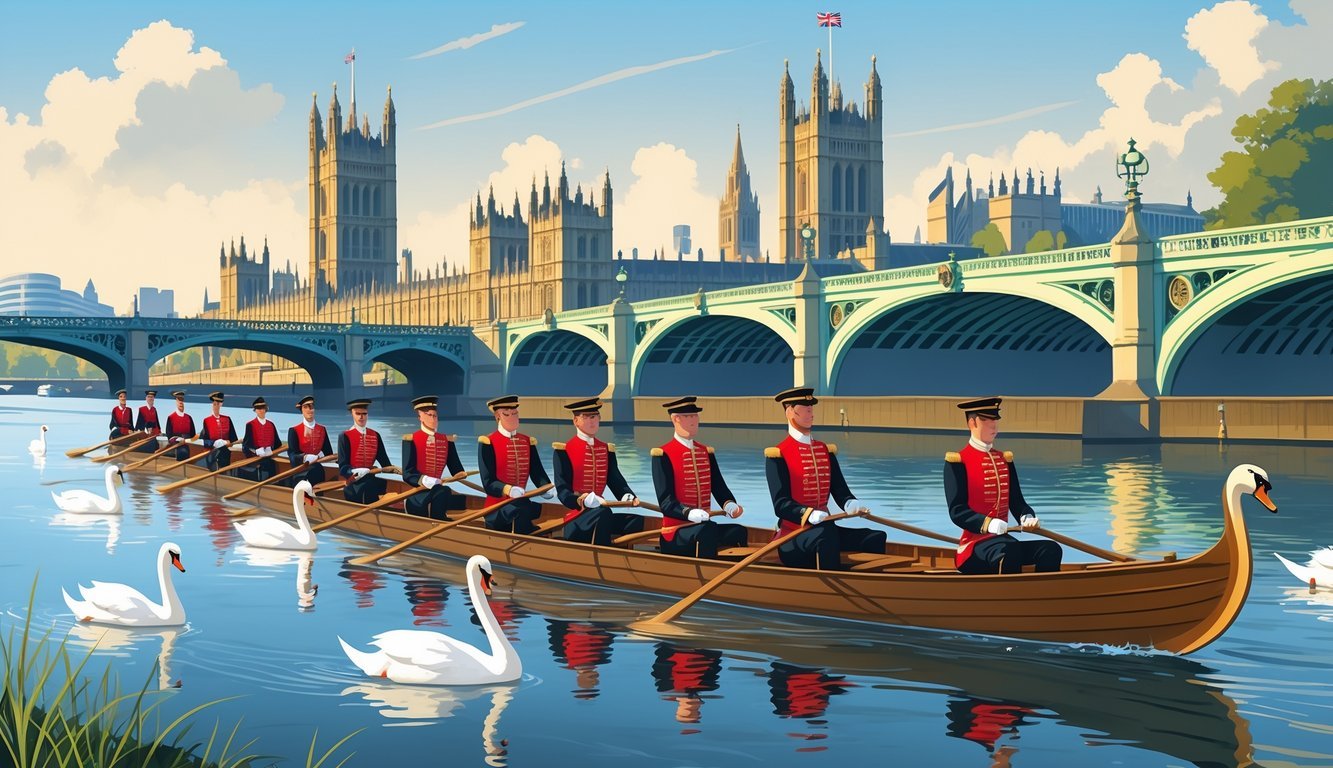
Every summer on the River Thames, you can catch Swan Upping—a medieval tradition that’s still going strong. Teams in scarlet uniforms row along, catching and checking mute swans for health and numbers.
This has happened since the 12th century, and the whole thing takes five days. They gently weigh the young swans and look for injuries.
It’s not just a show. The event helps protect the swans and keeps tabs on their population. Watching history and nature mix like this is honestly pretty cool.

Here’s a weird one: the royals weigh their Christmas guests before and after dinner. King Edward VII started this in the early 1900s.
The idea? To see if anyone overindulged during the feast. It’s their quirky way of checking on everyone’s health.
If you get invited for Christmas, you’ll step onto old-fashioned scales before the meal, and then again after. It’s strange, but people seem to have fun with it.
This tradition blends old customs with holiday celebrations. It’s a slice of royal life you probably won’t find anywhere else.
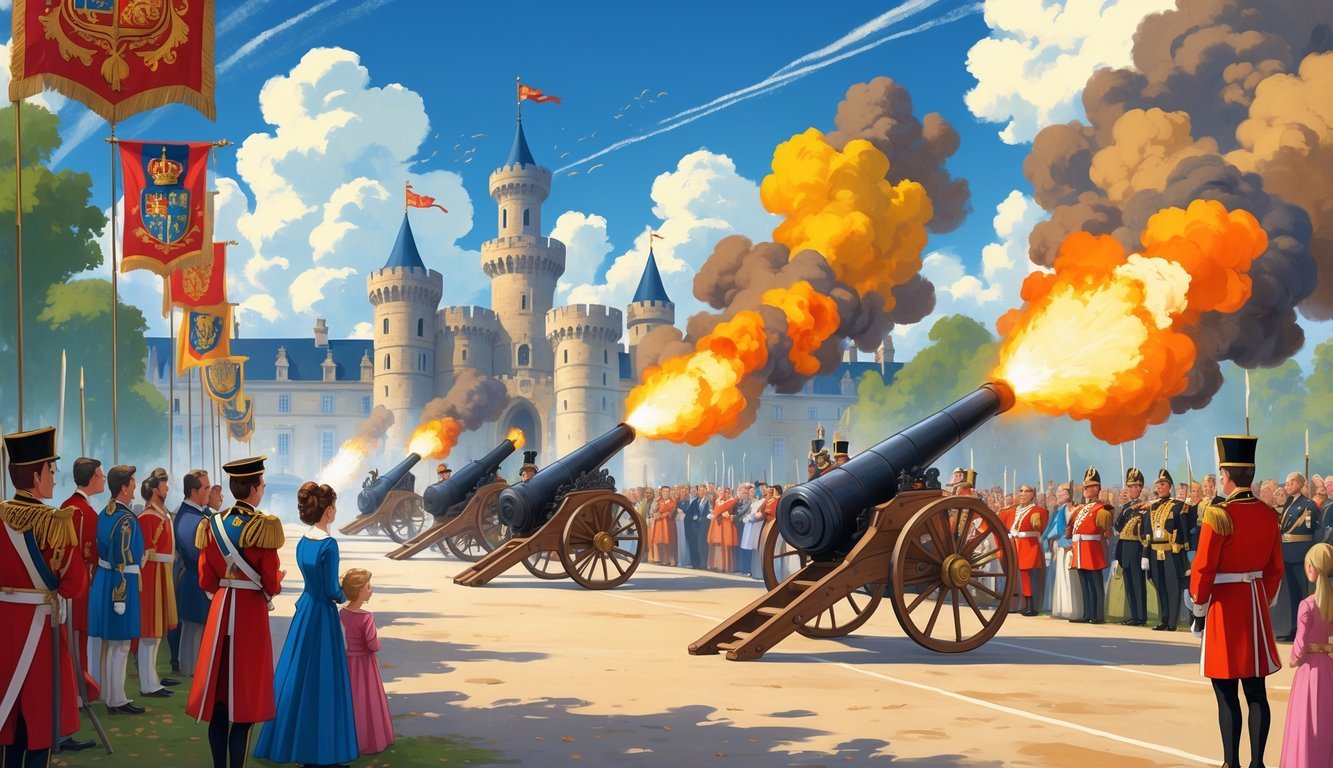
You’ll definitely notice the King’s birthday gun salute if you’re in London at noon. Guards fire 41 shots in places like Green Park and the Tower of London.
They combine the classic 21-gun salute with extra rounds for the King’s status. It’s a loud, dramatic way to mark the occasion.
When those cannons go off, you’re hearing a tradition that’s lasted for centuries. The excitement is almost contagious!

The Royal Maundy is an old tradition where the monarch gives Maundy money to older folks who’ve served their community. It’s been happening for more than 800 years.
At first, the monarch actually washed the feet of poor people, following the example of Jesus. While they don’t really do the foot-washing anymore, the message of humility and service is still there.
Every Maundy Thursday, this event reminds everyone that even royalty can show kindness. It’s a mix of religion, history, and royal ritual that’s totally unique.
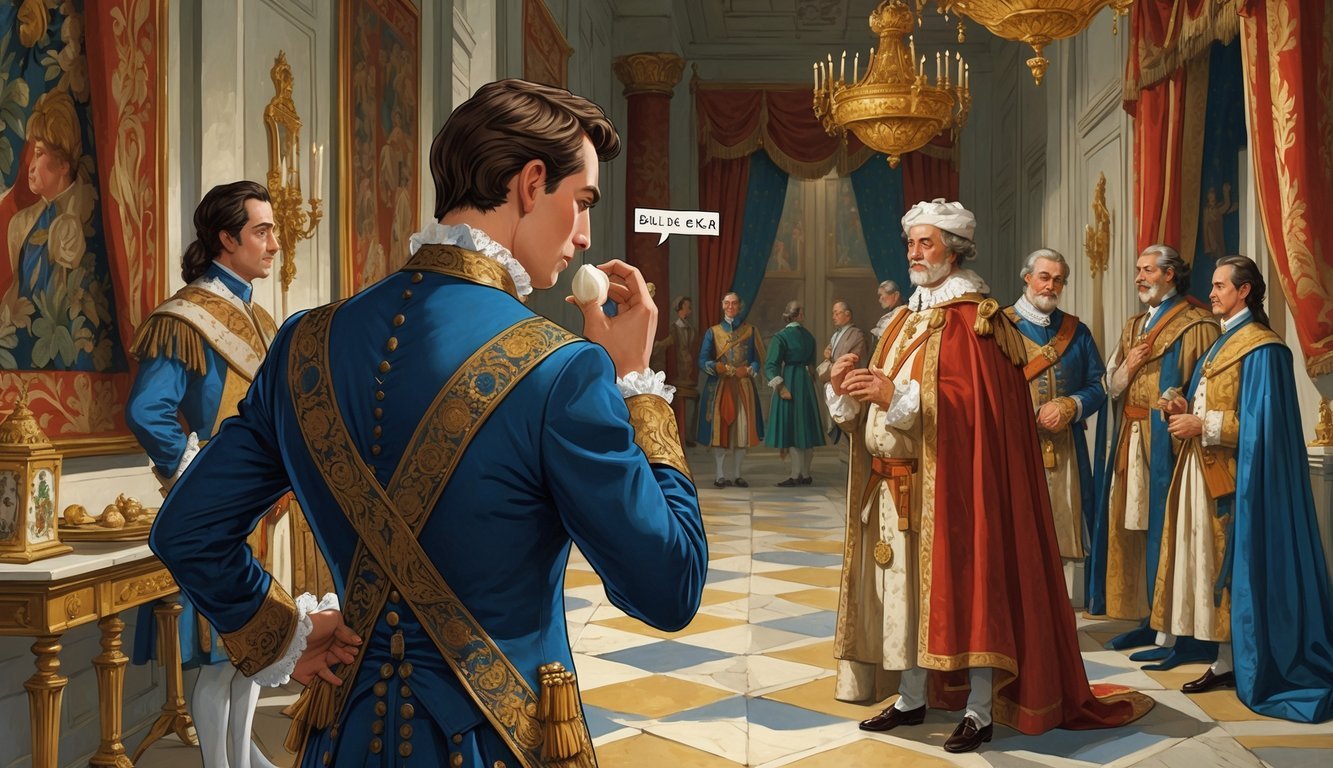
The royal family avoids garlic before public events. Garlic’s strong smell could make close meetings awkward, so they just skip it.
The Queen never liked garlic and rarely ate it. The rest of the family follows suit, especially before big appearances.
So if you ever wonder why royal menus seem bland, it’s probably the garlic ban. It’s all about making a good impression and, honestly, keeping things fresh.
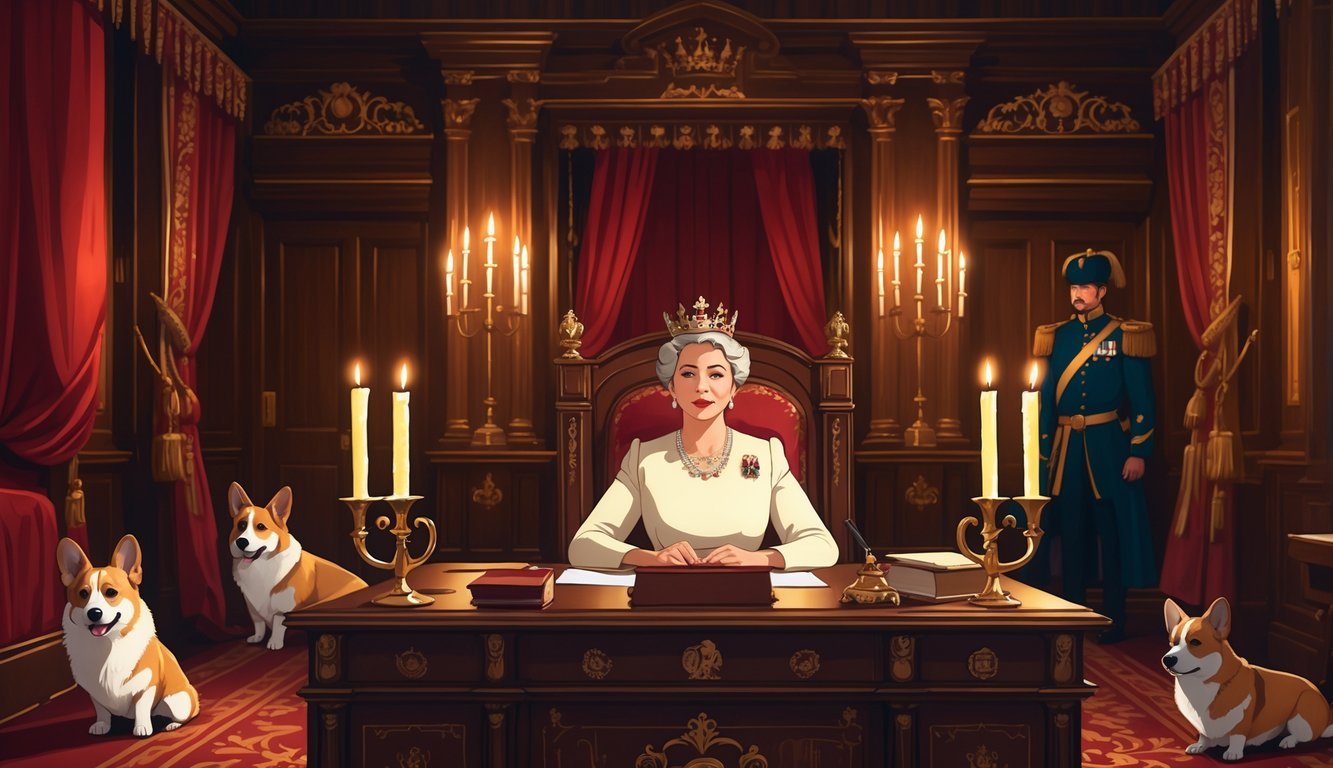
The Queen’s Speech—yep, the big one at the State Opening of Parliament—has a twist. She often reads it by candlelight.
The candlelit setting brings a warm, old-fashioned vibe to this serious moment. It’s a tradition that’s stuck around for centuries.
Candles connect the event to royal history and remind everyone that some things don’t change. The soft glow makes the speech feel both solemn and kind of magical.
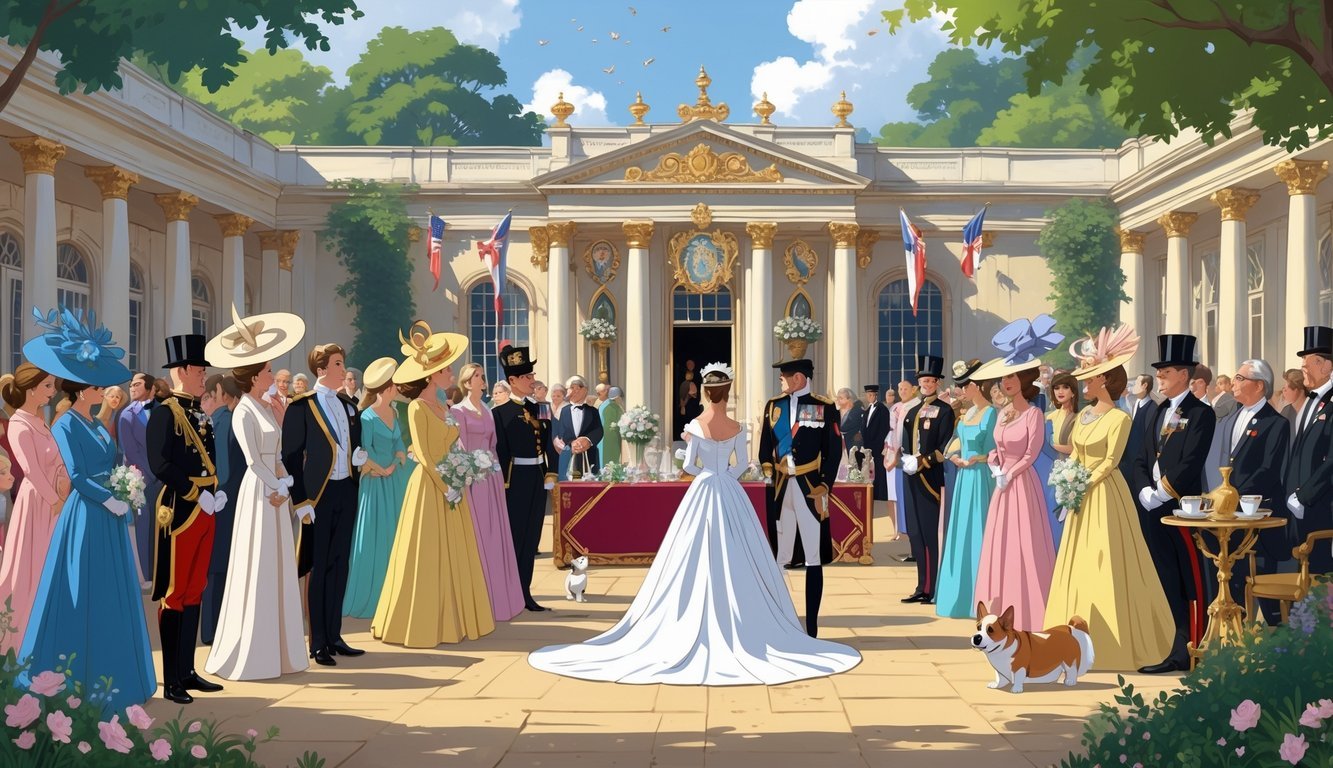
At royal weddings, you’ll see fancy hats everywhere—except on the monarch. The king or queen never wears a hat at these events.
This rule comes from old royal etiquette. It helps the monarch stand out and shows respect for tradition.
Picture a sea of stylish hats, but the monarch’s head is bare. That’s one way to make a royal statement!

Did you know the Tower of London once housed a royal menagerie? Starting in the 1200s, kings and queens kept exotic animals like lions, bears, and even a polar bear as gifts.
You can still spot the Tower of Lions when you visit—a reminder of this strange chapter in royal history.
The menagerie lasted until 1835, when they moved the animals to the new London Zoo. Imagine wild animals roaming inside a fortress!
It’s a bizarre tradition that really shaped royal life back then.
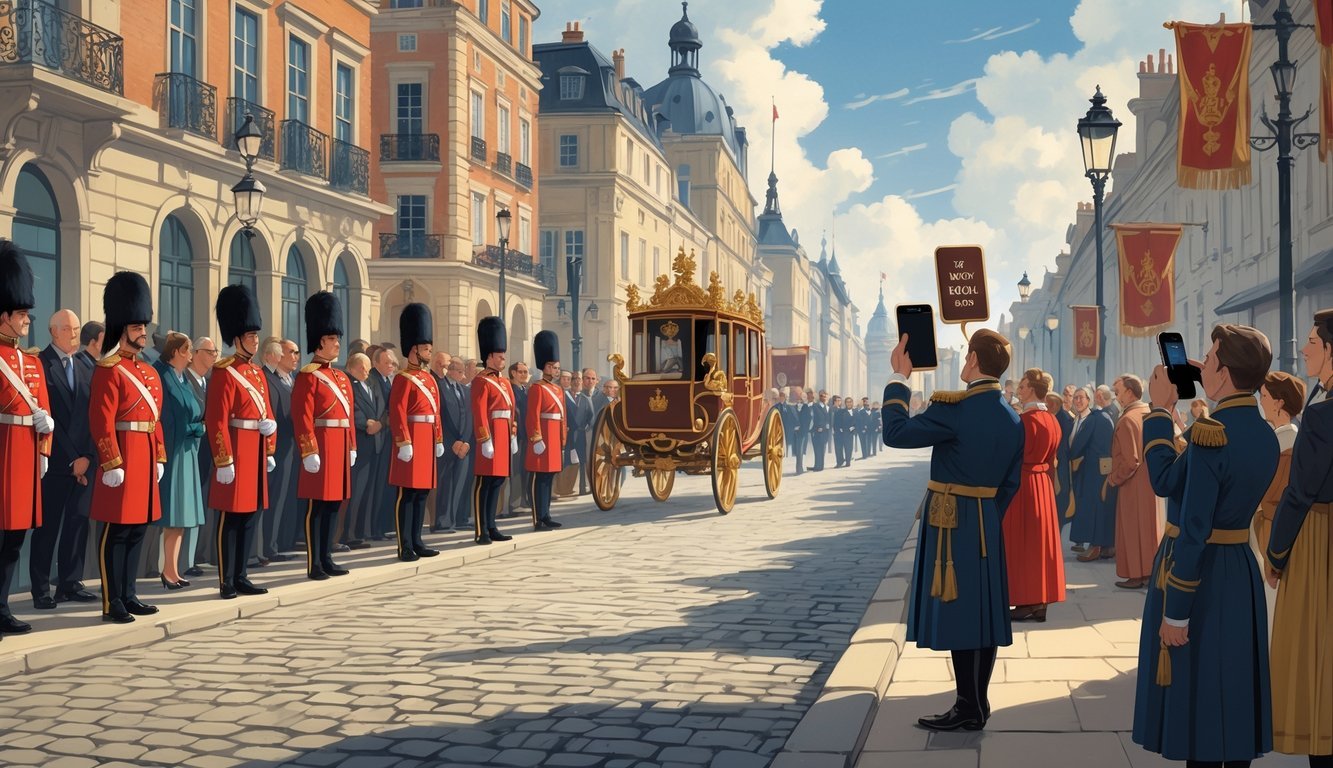
If you’re at a royal procession, you have to silence your phone. It’s a strict rule, not just a polite suggestion.
The organizers want everything to run smoothly, without any annoying ringtones. A ringing phone can ruin the serious mood in a second.
Everyone in the crowd focuses on the moment, and nobody wants a phone to break that spell. So next time you’re at a royal event, flip your phone to silent and soak up the atmosphere.
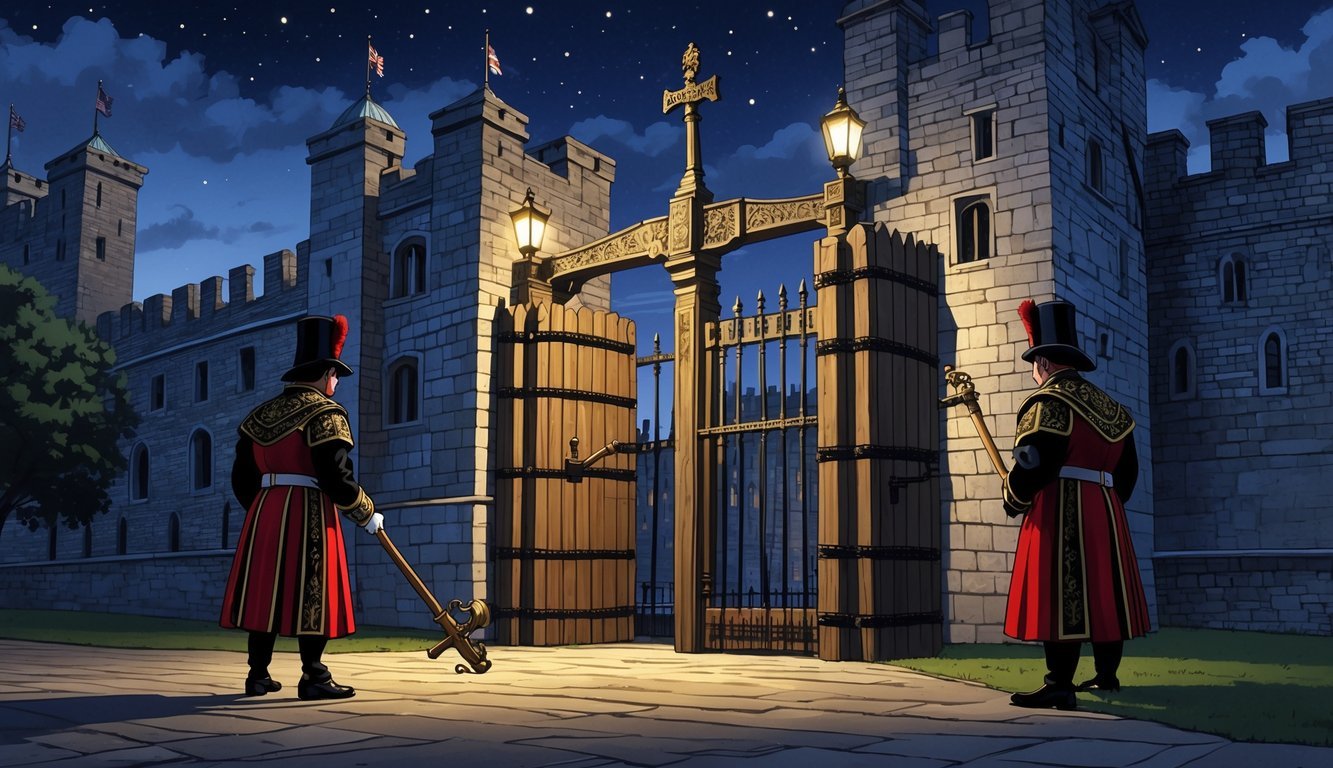
Every single night, the Tower of London closes with the Ceremony of the Keys. Guards have locked up the gates this way for over 700 years.
At 9:53 pm sharp, the Chief Yeoman Warder leads the guards through the ritual. They march with precision, making sure everything’s secure.
This ceremony protects the Crown Jewels and keeps the Tower safe. It’s a living piece of history you can actually watch in person.
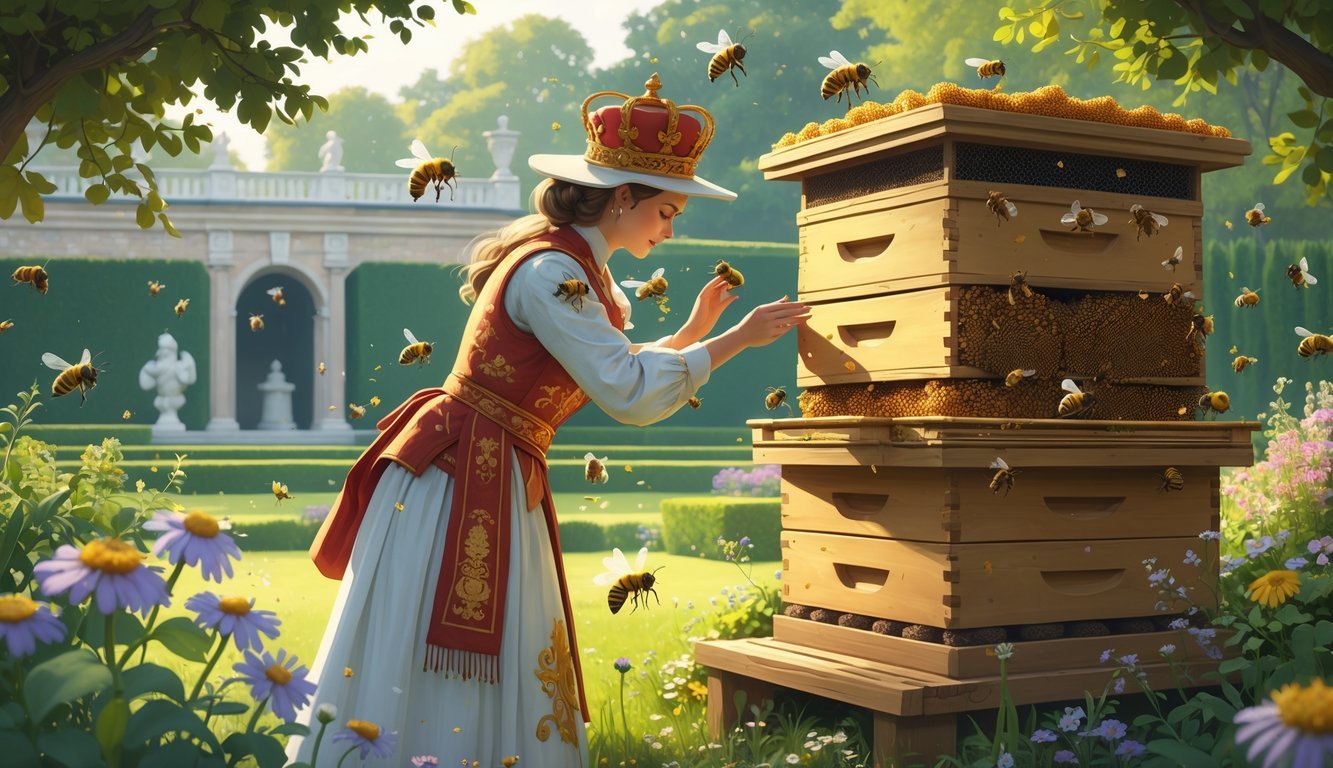
Here’s a quirky one: when a monarch dies, the royal beekeeper tells the bees. They gently tap on the hives and share the news, like, “The queen is gone, but the new king will look after you.”
This old tradition, called “telling the bees,” started in Europe and isn’t just royal—regular folks used to do it too.
The moment feels quiet and a little mysterious. The beekeeper treats the bees as part of the family, showing respect that still surprises people today.
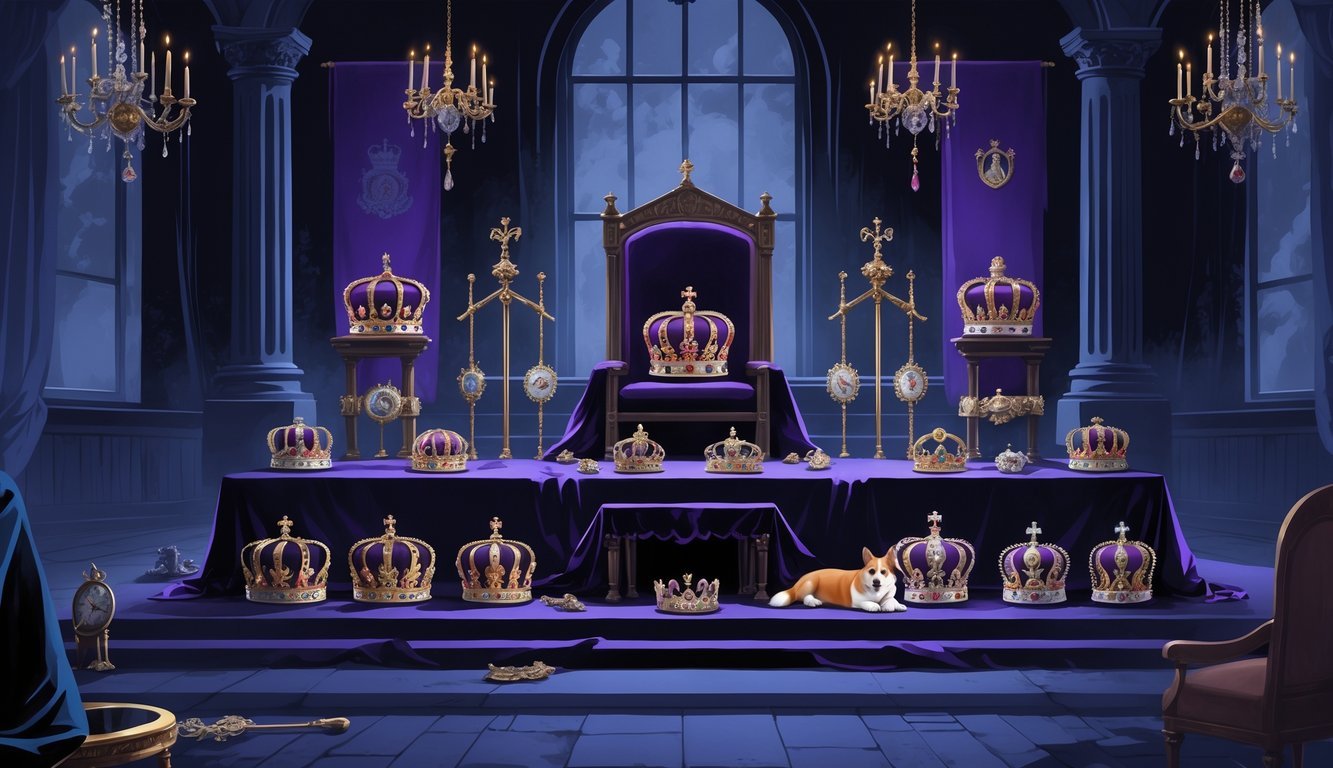
You’d probably expect royal jewels to always glitter, right? But after the Queen passes away, some of her brightest pieces just… disappear for a while.
The family tucks certain jewels away or brings them out only on rare occasions. That’s their way of showing respect, and honestly, it keeps a bit of mystery swirling around the collection.
You might spot a royal who isn’t wearing the Queen’s old favorites. They don’t just hand down those pieces instantly.
Instead, they pass them along carefully, which makes it feel like a big deal when the jewels finally show up again.
Next time you notice a royal missing that usual sparkle, just know there’s a tradition at play. The shine comes back—but only when the moment feels right.